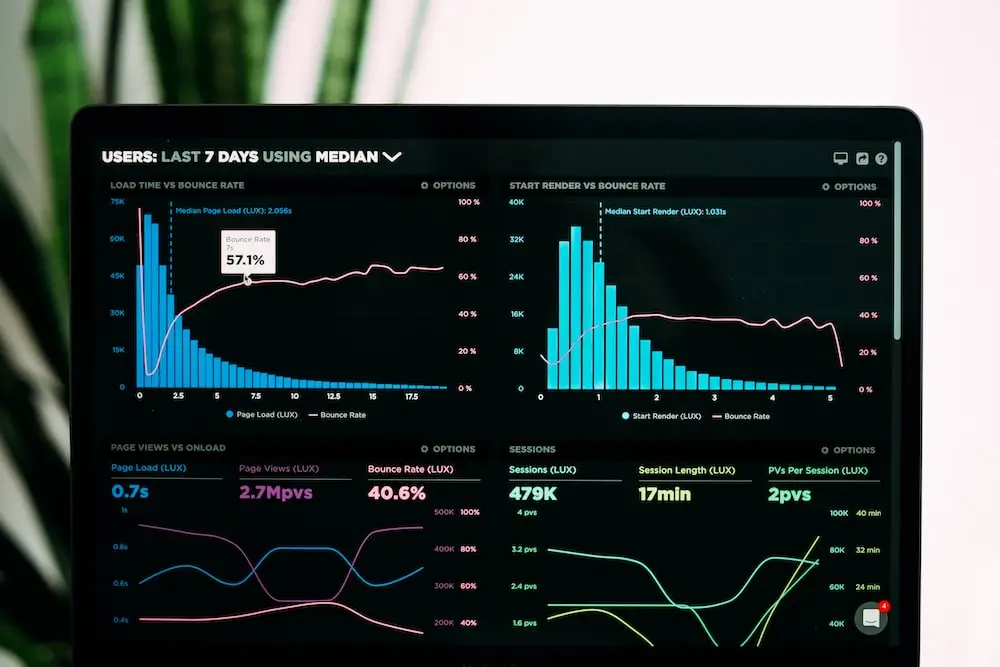Who is a Data Engineer?
A Data Engineer is a specialist who has skills and knowledge in the field of data processing and management. He is responsible for collecting, processing and organizing a large amount of information coming to the company. Its main purpose is to provide access to relevant data for analysts, financiers, managers, developers and other interested parties.
Data Engineer implements special tools and technologies for working with data, such as BI systems (Tableau, PowerBI, QlikView), ELK stack (Elasticsearch, Logstash, Kibana) and others. Important skills are the ability to work with SQL and NoSQL databases, as well as with large data sets (Big Data).
As for professional development, a Data Engineer can direct his career in two directions: horizontal and vertical. In the first case, he can go into related fields, such as software development, data science or management. In the second case, he can develop within the profession itself, deepening his knowledge and skills in the field of data engineering.
We delve into the details of this exciting career.
Basic responsibilities of a data engineer

The work of a data engineer includes a wide range of responsibilities related to data processing and management. It works with both structured and unstructured data, targeting SQL and NoSQL databases.
A data engineer deals with large volumes of information and performs various operations such as cleaning, managing, transforming and deduplicating data. His tasks are to develop platforms and architectures for real-time data analysis.
In addition, a data engineer plays the role of a software engineer as he designs the platforms and architecture used in software development. An understanding of design and testing tools and working with cloud infrastructure are important skills.
A data engineer collects data from various sources and processes it through ETL/ELT pipelines. It also defines the methods and architecture for data retention. His work includes interaction with a team of analysts, financiers, managers, developers and other specialists.
For a successful career as a data engineer, it is necessary to master SQL and Python programming languages, SQL and NoSQL databases, ETL/ELT technologies, cloud infrastructure, Git and IDE.
The main responsibilities of a data engineer:
- Work with structured and unstructured data, including SQL and NoSQL databases
- Cleaning, management, transformation, deduplication of data and other big data operations
- Development of platforms and architecture for real-time data analysis
- Building a front-end API and understanding design and testing tools
- Collection of data from various sources and their processing through ETL/ELT pipelines
- Determination of the method and architecture of the data storage location
- Interaction with a team of analysts, financiers, managers, developers, etc
- Knowledge of SQL and Python programming languages, SQL and NoSQL databases, ETL/ELT technologies, cloud infrastructure, Git and IDE
How to become a Data Engineer specialist?

In order to become a successful data engineer, you need to have the relevant education, skills and certifications.
Education: A college degree in computer science or a related discipline is an important prerequisite for working as a data engineer. This will allow you to gain a deep understanding of the principles of data processing and software development.
Skills: Experience with SQL and NoSQL databases is a must for a data engineer. You also need to have analytical skills and knowledge of programming languages such as Python, Scala or Java. Understanding design and testing tools will also benefit your career.
Certifications: A professional certification in computer science or data engineering can validate your knowledge and skills. There are also certifications in the field of data processing, such as Certified Data Management Professional (CDMP) or AWS Certified Big Data - Specialty. Certifications in the field of cloud systems and cloud data processing can also be useful, such as AWS Certified Solutions Architect or Google Cloud Certified - Data Engineer.
Courses and Internships: Participating in data engineering courses and internships will help you improve your skills and gain hands-on experience with real-world tasks and assignments. It is also important to participate in training and mentoring programs for continuous professional development.
| Education | Skills | Certification |
| College degree in Computer Science or related discipline | Experience with SQL and NoSQL databases, analytical skills, knowledge of Python, Scala or Java, understanding of design and testing tools | Certifications in data processing such as Certified Data Management Professional (CDMP) or AWS Certified Big Data - Specialty |
| Professional certification in computer science or data engineering | Knowledge of data storage and transmission formats such as JSON, CSV, XML, JSONLine, Apache Avro, Apache Parquet | Certifications in the field of cloud systems and data processing, such as AWS Certified Solutions Architect or Google Cloud Certified - Data Engineer |
| Courses and internships in the field of data engineering | Analytical skills, deep understanding of SQL, ability to work with large data and limited resources | Participation in training and mentoring programs, certifications in the field of data engineering |
Let's take a closer look at the tools that data engineers use.
Data Engineering Tools and Technologies
Data Engineering is a field that utilizes a variety of tools and technologies for data processing and management. Here are some of the key ones:
Data Engineering Tools and Technologies:
- Hadoop - a distributed system for storing and processing large amounts of data. It uses MapReduce for parallel data processing on a cluster of servers.
- Apache Spark - a fast and powerful framework for real-time data processing and batch processing. It supports Scala, Java, and Python programming languages, making it versatile and easy to use.
- SQL and NoSQL databases, such as PostgreSQL, Oracle, MongoDB, and Cassandra. SQL databases are used for structured data, while NoSQL databases are used for unstructured data.
- AWS, Google Cloud Platform, Microsoft Azure - these are cloud platforms that provide capabilities for storing and processing data on a large scale. They offer flexibility, scalability, and security, making them popular among data engineers.
- Python and Scala - these are programming languages commonly used by data engineers for developing scripts and analyzing data. Python has a wide range of libraries for working with data, while Scala has a powerful type system and a functional approach.
These are just a few examples of the tools and technologies used by data engineers. Each company may use a different combination of these tools depending on their needs and project specifics.
Now that we know about the tools, let's learn about career opportunities in this field.
Career prospects for a data engineer

A data engineer is a promising profession that is in demand on the labor market. Thanks to a wide range of skills and knowledge in the field of data processing and management, you can develop in different directions.
One of the possible directions for development is Data Science. A data engineer can use their skills in data collection and processing to further develop in the field of Data Science. You can become a Data Scientist who analyzes data, develops predictive models and solves complex problems.
Another direction is Cloud Systems Engineer. Knowledge of cloud systems and data processing gives you career opportunities in this fast-growing segment. You can work with cloud platforms such as AWS, Google Cloud or Microsoft Azure and develop infrastructure for storing and processing data in the cloud.
Another option is to specialize in data analysis as a Data Analyst. You can use your data collection and processing skills to analyze and deliver business results. You will work with a team of analysts and managers to help the company make informed, data-driven decisions.
In addition, knowing how to structure and process large amounts of data makes you a valuable Big Data expert. You can develop into a Big Data Architect, designing architecture to store and process large amounts of data.
Career prospects for a data engineer:
- Data engineer: this is a promising profession that is in demand in the labor market.
- Data Scientist: A data engineer can develop into Data Science using their skills in data collection and processing.
- Cloud Systems Engineer: knowledge of cloud systems and their data processing provides opportunities for career growth.
- Data Analyst: A data engineer may specialize in analyzing data and delivering business results.
- Big Data Architect: Skills in structuring and processing large volumes of data make a data engineer a valuable Big Data professional.
The role of the data engineer in the modern world

In today's world, where the amount of data is growing exponentially, the role of the data engineer is becoming increasingly important. A data engineer performs a key function - he provides relevant data to a team of analysts, financiers, managers, developers and other specialists.
One of the primary responsibilities of a data engineer is structuring and cleaning data. He develops ETL/ELT pipelines that enable efficient data collection and transformation. A data engineer also uses a variety of tools and technologies to store, process, and analyze data.
In addition, a data engineer must understand the company's multifaceted business logic and product in order to effectively prepare data for further work. He collaborates with other specialists, such as data scientists, data analysts and business analysts, to provide valuable insights and make informed decisions.
Benefits of the Data Engineer role
- Ability to work with large volumes of data
- High popularity of the profession in the modern world
- Ability to develop and improve data storage and processing systems
- A variety of assignments and tasks that provide interesting and stimulating work
Disadvantages of the data engineer role
- The need to constantly update skills and learn new technologies
- High demand for accuracy and quality of data processing
- The need to understand the company's multifaceted business logic and product
The role of the data engineer is important in today's companies, as large volumes of data become a key resource in making strategic decisions. A data engineer also has the opportunity to develop data storage and processing systems, which provides interesting and stimulating work.
Summary
In summary, the role of a data engineer in the modern world is extremely important. They have to work with structured and unstructured data, providing relevant data to the team of analysts, financiers, managers, and developers. A data engineer performs a wide range of tasks, such as data cleaning, management, transformation, and deduplication. They also have a deep understanding of basic programming concepts and develop platforms and architectures for efficient data processing. Knowledge of design tools, testing, and cloud infrastructure is necessary for a successful career in this profession. Thus, a data engineer plays a crucial role in ensuring effective data management in companies in today's world.
Questions - Answers
What skills are needed to be a data engineer?
Skills required to be a data engineer include proficiency in a programming language such as SQL and Python. Knowledge of SQL and NoSQL databases as well as ETL/ELT tools such as Apache Airflow and Hadoop is also essential. Understanding the principles of cloud computing and big data processing on platforms such as AWS or Google Cloud Platform is also essential. Proficiency with relational and non-relational databases, including PostgreSQL, MySQL, and MongoDB, is also a must. It is important to have an understanding of the principles of ETL and data storage, as well as to be familiar with the concepts of data warehouse and data lake.
Should I become a data engineer?
Becoming a data engineer is an exciting path for those interested in processing and managing data. Working in this field provides the opportunity to work with a variety of tasks and companies where large volumes of data are a key resource. The salary for a data engineer is also often attractive. However, it is worth keeping in mind that to achieve success in this profession, you need to constantly update your skills and learn new things. So if you're interested in data analytics and programming, a career as a data engineer could be an exciting development path for you.




